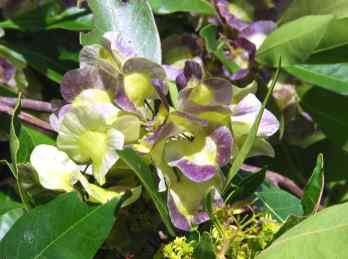14 September 2015
 The knowledge of the first Australians has become a source of scientific hope for researchers keen to explore the potential of traditional Indigenous medicines in treating modern illnesses.
The knowledge of the first Australians has become a source of scientific hope for researchers keen to explore the potential of traditional Indigenous medicines in treating modern illnesses.
In the final of UniSA’s Successful Ageing seminar series for 2015 UniSA researchers will discuss the progress of some vital collaborative research projects exploring the properties of native plants and their potential to be developed as treatments for common conditions.
The seminar - Indigenous Medicines: Learning from the first Australians - will be held at UniSA’s City West Campus in the Barbara Hanrahan Building (ground floor lecture theatre BH2-09), on Friday September 25 from 2pm to 4pm.
The seminar will feature presentations from two renowned researchers in the field of Australian medicinal plants and complementary medicines.
UniSA Senior Research Fellow, Dr Susan Semple, Indigenous medicinal plant knowledge has provided leads to discovering many medicinal products that are used in both Western medicine and complementary medicine.
“There is significant potential to develop new medicines from plants which have been used by Australian Aboriginal people for many years,” Dr Semple says.
“Just one example is the Dodonaea polyandra or Hop Bush, which researchers have examined and found it contains novel anti-inflammatory compounds and extracts.
“The real pity is that often Western scientific research into Australian medicinal plants has given little or no recognition to the traditional owners, no collaboration in the research and certainly no compensation to them as owners and keepers of medicinal knowledge about these plants.”
Eager to engage Aboriginal communities, Dr Semple has developed a novel plant research model, which is locally initiated and driven by Aboriginal people as part of their own planning for the sustainable management and economic development of their plants.
“We have been working in partnership with the Chuulangun Aboriginal Corporation, co-led with David Claudie - a traditional owner and Chair of the Corporation - to undertake research both on traditional homelands and in the University laboratories,” she says.
“Our collaborative projects with Aboriginal communities include examining the medicinal activities of, and product development from, some traditionally used plants.”
Co-presenter Dr Bradley Simpson, an Adjunct Research Fellow at UniSA and NHMRC Early Career Fellow at the Flinders Centre for Innovation in Cancer will join Dr Semple.
Dr Simpson will give an historical overview of the relationship between plants and cancer, and the role that plants might play in our lifestyles in relation to prevention of disease.
The seminar is a free event but registration is essential – please phone (08) 8302 0160 or book online
Media contact: Michèle Nardelli office +61 883020966 mob 0418823673 email michele.nardelli@unisa.edu.au


